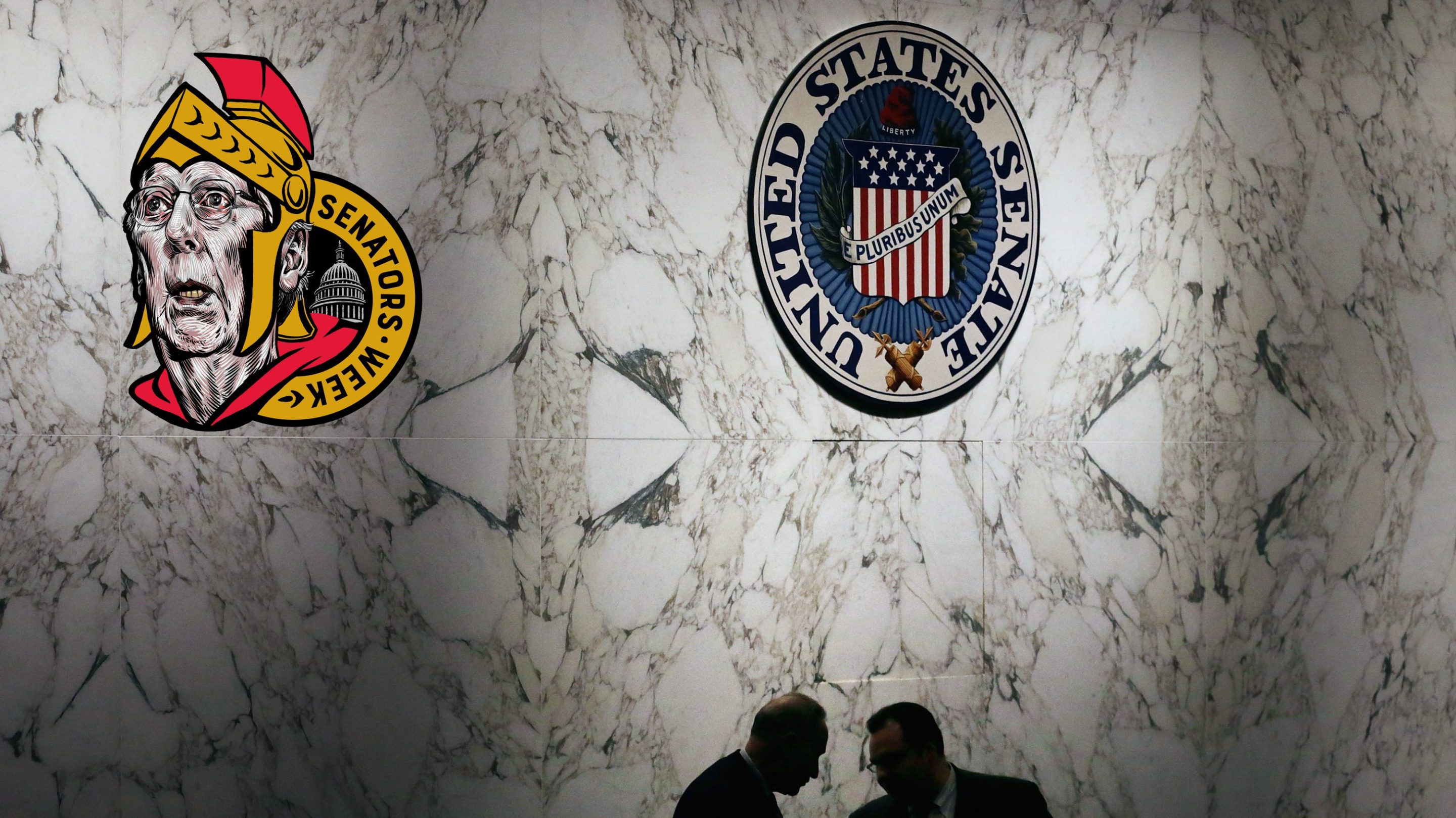This week, Defector has chosen to curate a collection of writing inspired by two entities that have had an indelible effect on North America: the upper house of the United States Congress and Eugene Melnyk’s pro hockey team. This is Senators Week.
Like a lot of laws, the Freedom of Information Act sounds fantastic. It's all right there in the name—freedom of information. It sounds so good, right? Catchy. A great turn of phrase. Who doesn't believe that an informed citizen is a better citizen? Or that anyone should have the ability to get information from their own government? Calling easy access to information as important to a certain image of the United States as apple pie or the Statue of Liberty might be a stretch, but not to me. You could say you don't believe in freedom of information, but for me and other journalists like myself, that's like saying you don't love kittens. Who doesn't love kittens?
There's just one problem. When Congress passed the Freedom of Information Act in 1966, it exempted from the law one very key legislative body: itself.
This isn't hidden. Like a lot of public record statutes, the Freedom of Information Act starts out with a list of definitions, laying out what parts of the law apply to which organizations. In this case, FOIA only applies to federal agencies. And who is not a federal agency? Congress. In fact, Congress is the very first non-agency listed! They put themselves ahead of the courts, as well as military commissions. At least the White House has to deal with the Presidential Records Act, which means you can get some White House records if you don't mind waiting until the president has been out of office for five years. It's not ideal. Yet it's still more than Congress has to fork over, which is nearly nothing.
OK, technically there are ways you could get records from Congress, but they're all convoluted and might not work. You can try to request public records from federal agencies that are in contact with Congress but Congress will fight back, saying FOIA doesn't apply to their emails. There's the National Archive and Records Administration, where U.S. Senate records do become public—after 20 years. At least that's faster than the U.S. House of Representatives and its archival records, which are closed for 30 years. There's also the Library of Congress, which is also exempt from FOIA but, per the law, "follows the spirit of that Act consistent with the Library's duties, functions, and responsibilities to the Congress." Still, that's far from guaranteeing you'll get what you want.
There are many reasons why our national political apparatus leaves a lot to be desired, and I don't want to claim that making Congress subject to FOIA would fix everything. I know better; I'm from Florida, a state with a legendary public records policy and an equally legendary reputation for nonsense. Seeing the sludge is one thing, building up the political will and capital to clean it up is another, and one does not necessarily follow the other. But seeing the sludge at least gives you a place to start. It gives you something to point to and say, "Gosh, look at that pile of sludge, shouldn't we go about cleaning up that giant pile of sludge?" It gives you a framework for talking about politics beyond what the United States has right now, which in the absence of real information mostly manifests as an endless sports-style analysis of who won this debate or which member of Congress is more popular.
Sometimes, most of the time, all I want to know is what the heck Congress is doing. What are its members saying when they aren't being broadcast TV or radio or Instagram Live, when no one is looking? It's a perfectly reasonable question for any person in our country, for any person in any country, to have of their government. But, for now, Congress would rather go on keeping its secrets.






